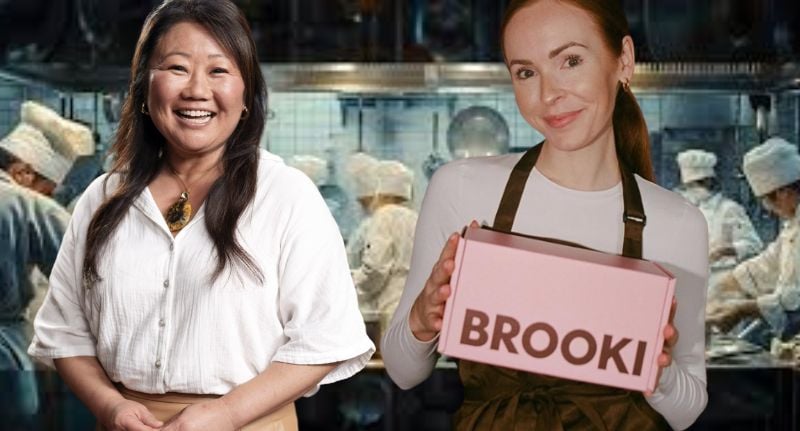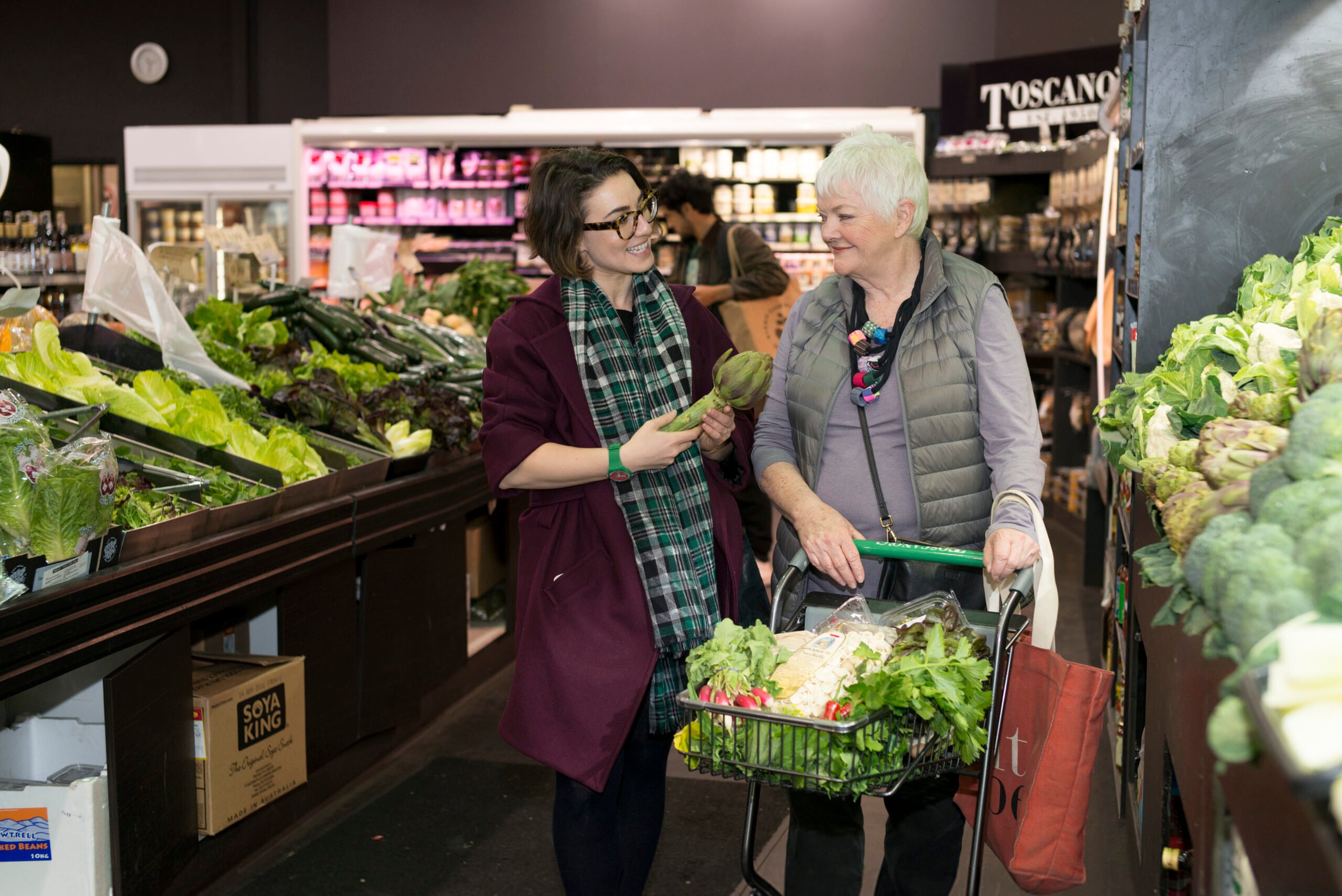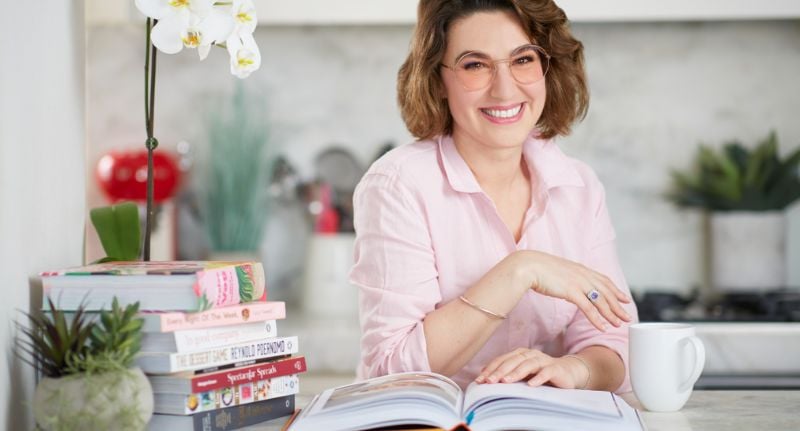As the culinary world continues to grapple with the possible ramifications of the recent recipe plagiarism scandal involving Bake with Brooki Brooke Bellamy and RecipeTin Eats’ founder Nagi Maehashi, award-winning cookbook author and broadcaster Alice Zaslavsky has added her voice to a complex and often misunderstood issue.
Speaking to Mediaweek, Zaslavsky, who hosts ‘A Bite To Eat With Alice’ on the ABC, explained that while food is inherently iterative and collaborative, there’s a clear distinction between drawing inspiration and taking without acknowledgment.
“Ownership is a very broad space in the cookery world,” Zaslavsky explained. “It’s an honour to have somebody take a recipe and riff on it… but it’s another thing entirely to include that riff in a cookbook and not attribute your inspiration.”
In the food writing community, she noted, it’s an unwritten rule to credit sources of inspiration, whether that comes from another cookbook, a memorable meal out, or a home-cooked dinner at a friend’s place. “It also offers context for your audience,” she added, “and helps tell the story behind the recipe.”
Copyright protects expression, not the recipe itself
Zaslavsky was clear about what copyright can and can’t do for recipe authors in Australia.
“There is no copyright law for the recipe itself,” she explained. “The copyright in our books is for the text, it’s the tone of voice, the headnotes, the working out. Not the recipe as a concept.”
According to the Australian Copyright Council, what’s protected is the original expression of the recipe (such as explanatory content and layout), but not the idea of boiling an orange for a cake or, say, the structure of a caramel slice.
That’s why, Zaslavsky argues, context matters so much. “The thousands of words that food blogs have before the recipe, that’s your time to indemnify yourself and highlight where your inspiration’s from. The more detail you give, the more you’re saying: I’ve done my research, and here’s how I got to this result.”

RecipeTin Eats’ founder Nagi Maehashi and Bake with Brooki Brooke Bellamy
Lived experience is the real differentiator
For Zaslavsky, what separates professional food writing from casual content creation is the personal story that underpins every dish. “So many cookbooks now are about someone’s lived experience,” she said.
“There’s always a reason why you’re making a caramel slice in a certain way. Maybe you always thought it could be more caramel-y, so you create a burnt caramel version. That thinking, that journey, is part of what makes a recipe your own.”
Even subtle decisions, like the choice to use sumac or stick to pantry staple, signal an author’s voice and culinary ethos.
“Each choice is like an algorithmic equation you’re making as a recipe writer,” she explained. “Do I stick to the authentic? Do I modernise? Do I simplify? That’s where your voice lives.”
Cookbook development isn’t one-size-fits-all
The process behind publishing a cookbook can be far more complex than consumers realise.
Authors may develop some recipes on their own and outsource others to developers due to time constraints or project scope. But that collaboration also introduces ethical considerations.
“Let’s say you’re a first-time author and more of an online person,” Zaslavsky said. “You send a recipe you love to a developer and say, ‘Something like this.’ If that developer is unscrupulous and under pressure, they might lift it too closely from the original source.:
The benchmark for originality in some circles is 15% change – a vague and problematic metric that Zaslavsky believes oversimplifies the nuance behind food creation.
“In the end, what you want is actual ownership, not just a name slapped on a dish, but a sense that you were involved in how that dish came to be.”

Alice with Stephaine Alexander – Toscano’s at Victoria Gardens
What AI can’t replicate
In the age of AI-generated cookbooks flooding platforms like Amazon, Zaslavsky is wary of how technology is changing the recipe landscape.
“You could ask an LLM (large language model) to write you a cookbook, and it might spit out 100 recipes for an air fryer,” she said. “But what you don’t get is the guarantee of the recipe working. You don’t get the years of lived experience, or the collaborative effort it takes to refine a recipe for real-world use.”
That human intuition is critical. “When you’ve been in the industry a while, you can look at a recipe and instantly know if it’s going to work or not. That’s something AI can’t replicate.”
Credibility and connection still matter
At a time when content can be created and shared faster than ever, Zaslavsky’s message is a timely one for publishers, marketers, and audiences alike: authenticity still counts. Whether you’re a recipe developer, a content strategist, or a brand commissioning a cookbook, there’s real value in a clearly voiced, ethically grounded body of work.
“In food writing, tone of voice is everything,” she said. “You can’t copyright a list of ingredients, but you can build trust through transparency, collaboration, and sharing your process. That’s what readers connect with, and what makes a recipe, and the person behind it, worth following.”
